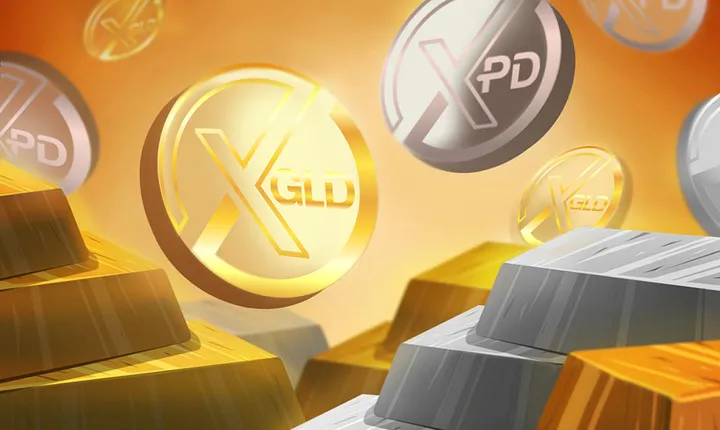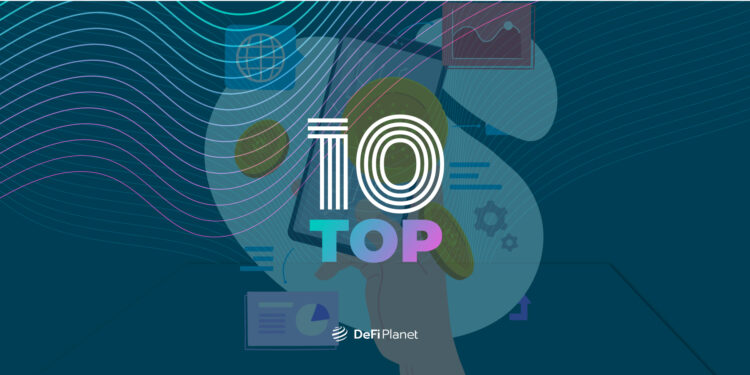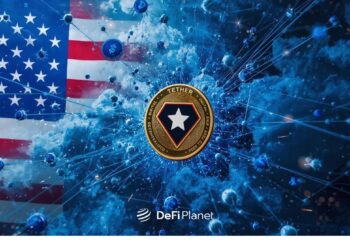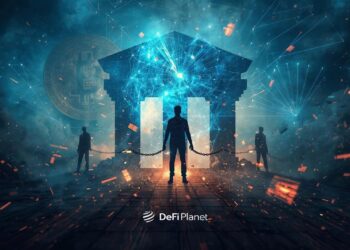Asset tokenization is a transformative concept that leverages blockchain technology to redefine ownership in the digital age. This concept ranks among the foremost trends in blockchain technology and has found applications across various sectors of the global economy, particularly in finance.
Participants in both the DeFi and traditional finance (TradFi) sectors are enthusiastic about implementing this concept to streamline their operations and enhance their offerings.
Larry Fink, the CEO of BlackRock, mentioned in the fund manager’s latest annual report that digital assets and asset tokenization have the potential to make financial markets more efficient, shorten processes, and lower costs for investors.
Also, the Avalanche Foundation recently launched Avalanche Vista, a $50 million initiative aimed at pioneering the transformation of real-world assets into digital tokens on the Avalanche blockchain.
In a previous article, we extensively discussed what it means to tokenize assets and its potential positive and negative impacts on the financial and other sectors. In this article, we will explore the top cases of the concept in the financial markets. Let’s get to it.

Tokenized Bonds, Stocks, and Shares
The transformation of financial assets such as bonds, stocks, and shares into digital tokens represents a significant departure from how the traditional financial markets operate.
Tokenization breaks these investment vehicles down into smaller, tradable units that can be exchanged on decentralized networks. This essentially makes these kinds of offerings more accessible to a broader range of investors and offers advantages in cost, speed, and security compared to traditional methods.
For instance, in February 2023, Swarm Markets, a DeFi infrastructure company, introduced tradable stocks and bonds on Polygon. These assets included stocks of companies like Apple and Tesla, as well as two US Treasury bond ETFs. These tokenized assets are open to both retail and institutional investors without a minimum investment requirement, although they are not yet accessible to US investors.
Tokenization also makes managing the entire life-cycle of these financial securities on the blockchain possible and efficient. Activities like issuing new assets, paying interest, and distributing dividends can occur almost instantly on the blockchain.
In June 2021, the German manufacturer Siemens released its inaugural one-year digital bond on the Polygon blockchain. Although investor funds were collected through traditional banking, Siemens achieved transaction efficiency and speed due to issuance using a blockchain system.
In essence, tokenizing financial assets ushers in a new era of investing for individuals, regardless of their location. It dismantles the old barriers that hindered some individuals from investing while enhancing the efficiency, accessibility, and cost-effectiveness of the entire system.
Tokenized Precious Metals

Given the highly liquid nature of the precious metals market, there are valid use cases for tokenizing assets like gold. Tokens backed by precious metals are highly liquid and suitable for continuous global trading. In fact, they are better than most other forms of precious metal ownership.
Aurus, a UK fintech company, pioneered the concept of giving investors access to tokenized precious metals. They have created tokens like tGOLD, tSILVER, and tPLATINUM; each backed 1:1 by physical metals. The innovation makes precious metals more accessible, tradable, and valuable.
Also, projects like DGLD, Cache.Gold (CGT), and Pax Gold are already demonstrating how tokenized gold can revolutionize the gold market by offering low fees and instant liquidity, making it as easy to trade as cryptocurrencies.
Tokenized Investment Funds
Tokenizing funds presents a new approach to managing different types of funds, including mutual funds, hedge funds, and private equity funds. It gives fund managers increased flexibility in moving assets within the fund, while investors can benefit from fractional ownership, enhanced liquidity, and access to a broader range of investors.
A clear example of this use case is the pilot program for a tokenized money market fund initiated by UBS Asset Management, a division of Switzerland’s largest financial group. The fund, which operates as a smart contract on the Ethereum network, is powered by UBS Tokenize, their in-house tokenization service.
Beyond the evident benefits, such as accessibility—enabling individuals to invest in small portions of a fund at any time—tokenized funds also offer enhanced diversification opportunities. Investors can spread their investments to mitigate risks and increase potential returns, all while being cost-effective. It also promotes transparency regarding the token issuer, fund asset details, and transaction specifics, such as buyer, seller, and price. This can mitigate information imbalances and potentially improve price discovery.
Tokenized Real Estate
According to Atlas One Research, real estate constitutes nearly 40% of the digital securities market, making it an increasingly popular investment option.
Tokenization is revolutionizing the real estate industry by increasing liquidity in a traditionally illiquid asset class, lowering entry barriers for retail investors, and reducing transaction costs.
In 2018, New York-based asset management firm Elevated Returns completed its first real estate tokenization deal, at the St. Regis Resort in Aspen, Colorado, for $18 million on the Ethereum blockchain. Originally, they planned to sell 50% of the resort as a single asset but later opted to sell 18.9% ownership through token sales.
However, challenges such as establishing clear market regulations, reconciling with land title registries, and implementing centralized reporting of transactions can pose hurdles for market participants and the full realization of this use case.
Tokenized Certifications
Certification tokenization involves converting certifications into secure digital tokens stored on a blockchain. When certifications are tokenized, they become immutable, serving as incorruptible records that validate an individual’s qualifications or ownership of an asset. This process also improves flexibility in managing assets and verifying credibility.
For instance, Petale, with its Cards product, enables the digital registration, certification, and tokenization of assets on a blockchain. These cards function as digital passports, representing real-world assets such as real estate, art, coins, and ownership rights.
Tokenization of Digital Art
Digital art is booming, and tokenization is a big part of it. It introduces a novel ownership mechanism that empowers artists with full control over their creations, greater influence over their art’s usage, and opportunities for earning.
Tokenization, especially, offers unique monetization avenues that traditional methods cannot provide. Creators can directly engage with their fans through token-based crowdfunding, sell portions of their work, or even use their art as collateral for loans. Additionally, it provides protection against counterfeiting, streamlining the sale of authentic pieces.
A noteworthy example of this in action is the sale of the NFT artwork “Everydays: The First 5000 Days” by digital artist Beeple, which fetched $69 million at a Christie’s auction in March 2021.

In Conclusion
- Tokenization fundamentally alters how we exchange value, redefining our concept of true value and how we perceive and engage with valuable assets.
- This transition towards a more inclusive and efficient global economy is not a passing trend. As we progress further into the Web3 era, tokenization is poised to assume an even more significant role in reshaping markets and businesses.
- Though it is still in its early stages, the world is already on the path toward a tokenized future, and we should expect to start seeing the impacts in every aspect of our lives.
Disclaimer: This article is intended solely for informational purposes and should not be considered trading or investment advice. Nothing herein should be construed as financial, legal, or tax advice. Trading or investing in cryptocurrencies carries a considerable risk of financial loss. Always conduct due diligence.
If you would like to read more articles (news reports, market analyses) like this, visit DeFi Planet and follow us on Twitter, LinkedIn, Facebook, Instagram, and CoinMarketCap Community.
“Take control of your crypto portfolio with MARKETS PRO, DeFi Planet’s suite of analytics tools.”





















